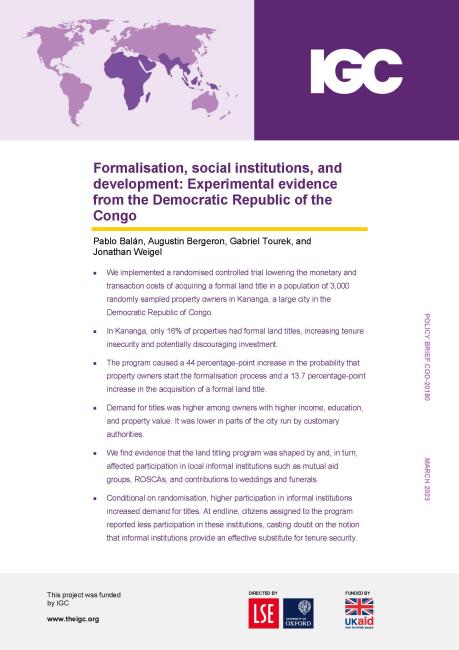Formalising informal taxation: Evidence from the DRC
Informal taxation, which often involves contributing labour toward local public goods provision, is a frequently overlooked source of local public finance in developing countries. However, in most countries the incidence of informal taxation is regressive: poor households often contribute more work hours than better-off households, and at times the most disadvantaged individuals within households also contribute the most to informal taxation (Olken and Singhal, 2011). Informal taxes have a particularly disproportionate burden on the poorest households in Kananga, DRC, the project’s proposed location, where 37% of households reported participating in an informal labour tax called salongo, and those who participated did so for 4.5 hours per week on average.
This project will advance knowledge of the incidence of informal taxation, its interaction with formal taxes and informal insurance networks, and its implications for local governance. We hope to infer how the intervention may strengthen the link between contributions to informal taxation and the provision of local public goods as well as potentially lead to a reduction in the regressivity of participation into informal taxation.
Moreover, there is growing interest in the use of technologies and biometrics to improve governance. Digitization of informal tax payments provides a unique setting in which to explore how validating contributions through a digital biometric system interacts with tax obligations. We hope to identify strategies by which digitization could facilitate the reduction of inequities in the tax burden.





